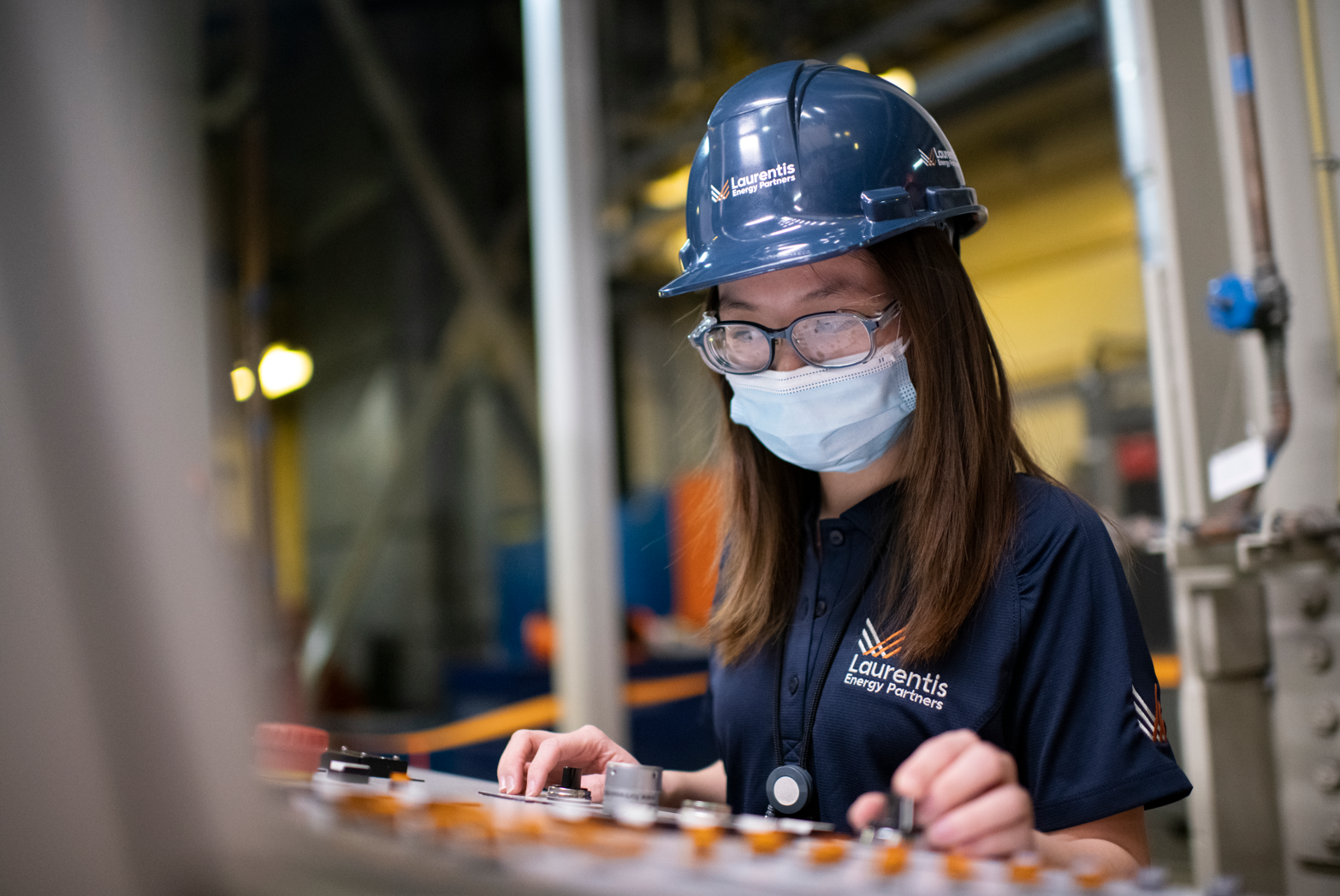Life-saving medical isotopes to treat liver cancer to be produced at Darlington Nuclear in Clarington
Published March 7, 2024 at 2:41 pm

Ontario Power Generation subsidiary Laurentis Energy Partners will produce a nuclear medical isotope at Darlington Nuclear that will help treat liver cancer in Canadians and in patients around the world.
Laurentis officials and industry partners were joined by Ontario Health Minister Sylvia Jones and Energy Minister Todd Smith at Toronto’s Princess Margaret Hospital Thursday to announce the project, which will see Laurentis become one of very few global suppliers of Y-90, a potentially life-saving isotope instrumental in treating several diseases, primarily liver cancer.
Laurentis will use its proprietary Target Delivery System (installed in Darlington’s #2 reactor) which was developed in partnership with Ottawa-area companies BWXT Medical and Boston Scientific, to produce Y-90. Pending regulatory approvals, Laurentis expects to begin producing the isotope by mid-2025.
“Laurentis will provide a critical supply of made-in-Ontario Y-90 to the world,” said company CEO Jason Van Wart. “As a company with experience, expertise and cutting-edge technology at our fingertips, we have a responsibility to advance the production of life-saving isotopes for the global medical community.”
The company has been at the testing stage for a targeted delivery system for the isotopes – which have been produced at Darlington since early last year – and is now ready for commercial production.

The target delivery system for producing medical isotopes at Darlington Nuclear
The system will convert the radioactive raw material into a cancer-fighting drug called TheraSphere, which is currently manufactured in Ontario using an imported supply of isotopes.
TheraSphere is a Health Canada and FDA-approved radioembolization treatment which has proven to downsize and destroy tumors; ultimately extending the survival of patients with Hepatocellular Carcinoma, the most common type of primary liver cancer. The drug enables targeted and personalized liver cancer therapy using millions of microscopic, irradiated Y-90 glass microspheres, to target tumors with a high dose of radiation without affecting other healthy parts of the body.
TheraSphere is also in early-stage clinical trials to treat glioblastoma, a highly aggressive form of brain cancer from which more than 90 per cent of patients die within five years of diagnosis.
Because of the unique design of Darlington’s CANDU reactors, Y-90 can be produced without interrupting the generation of clean energy. Once irradiated, Y-90 will be sent to BWXT Medical’s facility in Kanata to be packaged and distributed to more than 30 countries for use in minimally invasive, targeted radiation therapy to destroy cancer cells and shrink tumours.
Y-90 is the first of Laurentis’s isotopes to be used in therapeutic treatment. Other nuclear isotopes are used in critical applications such as medical diagnostics and food sterilization.
“Ontario has become a hub for healthcare research and innovation,” said Jones at Thursday’s press conference. “The production of medical isotopes in Ontario is another way our government is leveraging innovation to connect more people to the life-changing care they need, when they need it.”
Laurentis also produces Helium-3, a rare isotope used in quantum computing, neutron research, border security and medical imaging at Darlington, as well as Tritium – with plans underway to produce Cobalt-60, which now extracted from the reactors at Pickering.
The company is also assisting with refurbishment work at and with engineering service work at Darlington’s Small Modular Reactor project. Laurentis also provides expertise on inspections and on nuclear waste and decommissioning projects.
According to the Canadian Liver Foundation, liver cancer is the fourth most common cause of cancer deaths worldwide and it’s estimated to affect 4,700 Canadians, with the diagnosis leading to fatalities in about three-quarters of those suffering with the disease.






